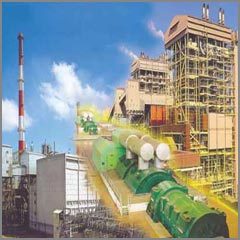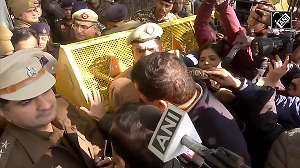 The ministry of commerce and industry would soon announce relaxed land-related norms for special economic zones to arrest the slackening pace of growth in these tax-free zones by making certain changes in the SEZ policy.
The ministry of commerce and industry would soon announce relaxed land-related norms for special economic zones to arrest the slackening pace of growth in these tax-free zones by making certain changes in the SEZ policy.
In a major amendment to the policy, enacted in 2006, for the first time the government will change the minimum land requirement across all sectors.
It will reduce the threshold limit for each sector-specific SEZ, in the wake of severe constraints faced by the developers in acquiring huge tracts of contiguous land.
At present, the minimum land required for multi-product, multi-service, information technology and gem & jewellery SEZs is 1,000 hectares (ha), 100 ha and 10 ha each, respectively.
This is also referred to as the '10-100-1,000' model.
The problem faced by most developers is with acquiring land for multi-product SEZs of 1,000 ha that is 'vacant' as well as 'contiguous'.
The government has now planned to reduce the minimum land requirement significantly.
For example, multi-product SEZs would now be required to acquire a minimum of 250 ha.
For multi-service and sector-specific SEZs, it will be 40 ha, and for other SEZs such as IT, gem & jewellery and biotech, the threshold would remain 10 ha.
"Acquisition of land has become a serious problem for the developers.
"They are also facing problems when it comes to expansion, relocation and single-window clearance.
"As a result, exports have taken a hit.
"So, we are planning to review the policy and make the necessary changes. We have the finance ministry on board and the announcement would be made soon," a commerce department official told Business Standard.
During several rounds of inspections, the government found that sometimes land of 1,000 ha was not required at all, especially in cases where the activities were related to clustering of units.
Another significant amendment to the SEZ policy would be with regard to the 'contiguity' norms.
Several projects have been held up on this particular criterion for the past four to five years.
The most controversial amongst these was the 1,233-ha multi-product
The project failed to take off, as it could not meet the contiguity norms ever since it was sanctioned by the government.
Developers had long been insisting on relaxing the contiguity norms for building SEZs, as they were often faced with the problem of a highway, water pipeline, railway track, canal or sewage line passing through the enclaves.
The government is likely to amend the policy in such a way that the contiguity norms would be applied only for the processing area where actual manufacturing and export take place, not in the non-processing areas that are to house residential colonies, hospitals and schools.
Besides, for IT SEZs, ring-fencing would be made mandatory, with the installation of more entry and exit gates guarded by security personnel to check those areas where the contiguity is broken due to the presence of some physical barrier such as railway lines, water bodies or highways, among others.
Finally, the government is likely to further dilute the definition of 'vacant' land.
At present, a lot with buildings is considered vacant if those structures have not been under any commercial use.
However, the changed policy would consider even such land vacant that houses a commercial building, but not exceeding 20 per cent of the overall land proposed for an SEZ.
Also, an operational building on that particular land would be delineated and not be meant for duty concessions.
Only the new structures that would be built in the SEZ would be entitled for those benefits.
However, the government is not going to make any changes with relation to the Minimum Alternate Tax and Dividend Distribution Tax.
Developers complain these are eroding the units' bottom lines.
The government had granted formal approvals to 589 SEZ projects as of March 2012. So far, 389 SEZs have been notified and 153 are in operation.
In 2011-2012, total exports from SEZs reached Rs 3,64,478 crore (Rs 3,644.78 billion), up 15.4 per cent from Rs 3,15,868 crore (Rs 3,158.68) a year before.











 © 2025 Rediff.com -
© 2025 Rediff.com -